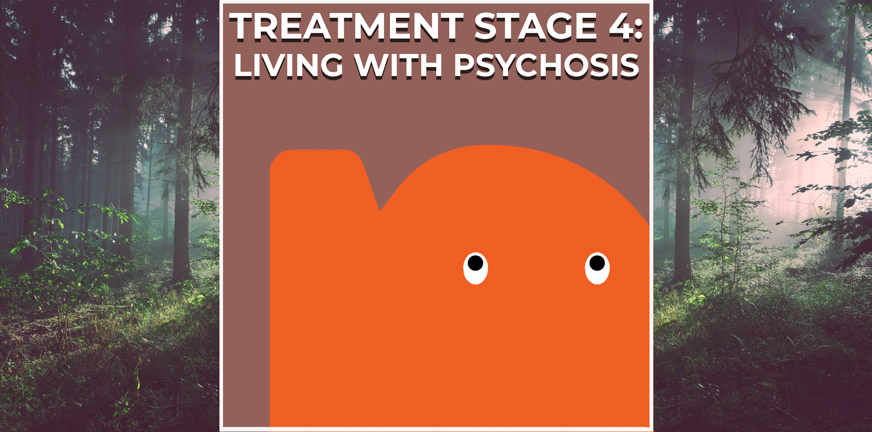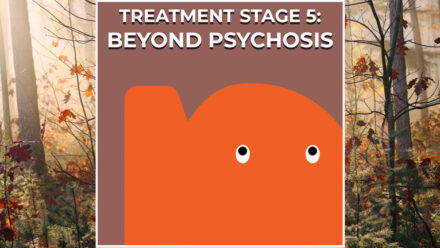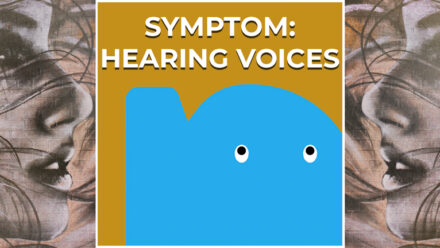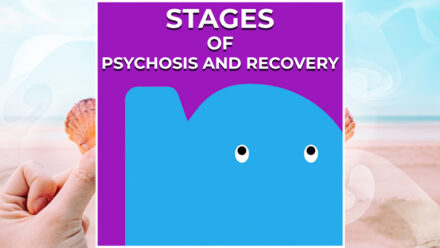
This fourth stage of living with psychosis vulnerability, begins when the crisis has calmed down sufficiently and faded into the background. You have learned to recognise possible triggers. And you have taken additional safety measures to avoid them, through a new way of life, perhaps including medication. You have been thinking about life goals and how to integrate the experience of psychosis, and what it means, into your life story.
You have taken some risks in order to experiment with your treatment, social activities and daytime occupation. You feel empowered to engage in ‘shared decision making’ with your psychiatrist and have made an elaborate crisis plan, fully in line with your personal preferences, which the care team has co-signed at your request. You think of yourself as a ‘survivor’ with a story to tell. You understand the concept of ‘psychosis susceptibility’ and why this would be a better term than ‘schizophrenia’.
Trial and error
Of course avoiding triggers is a good idea, but on the other hand it is also important to get out of your comfort zone to challenge and develop yourself. In short, someone has adjusted his or her life to the vulnerability during this stage and is now learning to live with it. This is a voyage of discovery through trial and error. And taking some risks, for example by reducing the medication. Because you can only know your limits by going beyond them.
In general, this stage is about learning to deal with your vulnerability. About setting boundaries. And about finding a healthy way to live, in a wholesome environment. During this stage you learn how to deal with (the risk of) relapse even better.
Whilst attending a recovery college, you might also begin to have questions on a deeper level. What has happened, really? What does my vulnerability say about my purpose and the meaning of life? During psychosis, people often experience the deepest of feelings, and themes of spiritual and religious awakening are common. After the stage of confusion, you can (ideally) put more pieces of the puzzle together in this current stage. This key process of becoming aware is the bridge to the next stage.
Every psychosis is unique
No two psychotic episodes are alike. For some people, the level of confusion can be so high that their ‘trial and error’ process mostly comes down to ‘error’. There are also people who go through a psychotic episode only once and then move on with their life. The stage of learning to deal with psychosis vulnerability can take years. Especially when it takes long to find the right support, treatment and/or medication.
Side effects of medication can be an additional burden to bear. It is good to discuss these matters with your doctor, because perhaps another medication is better for you or maybe the dosage needs to be adjusted. Also, you want a detailed crisis plan so that things are done in accordance to your preferences should a relapse occur. You want to be in control.
Different therapies, tools, and recovery support groups can be beneficial. During this stage it is good to look into a WRAP or crisis card.




